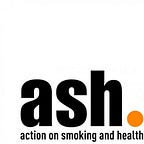The tobacco industry has a well-established history of using its scale and money to exert influence over policy and politicians. For decades it has worked tirelessly to prevent or delay regulatory and public health measures related to tobacco with bad science, corruption and lies. This is best summarised by Judge Kessler in the 2006 court case against Philip Morris International (and others):
“Over the course of more than 50 years, Defendants lied, misrepresented and deceived the American public, including smokers and the young people they avidly sought as ‘replacement’ smokers about the devastating health effects of smoking and environmental tobacco smoke.” [1]
The judgement also states that “Defendants’ Marketing Is a Substantial Contributing Factor to Youth Smoking Initiation” and that “The evidence in this case clearly establishes that Defendants have not ceased engaging in unlawful activity”. [1]
Public health measures such as standardised packaging of tobacco products [2] and the regulation of tobacco advertising [3] in particular have met with strong resistance by the industry. The tobacco companies continue to try and undermine legitimate, evidence-based public health measures on a global scale. They continue to make deceitful and evasive statements in relation to the evidence on smoking. [4]
For example, Imperial Tobacco falsely claimed that standardised packaging is “good for criminals” [5] and that terrorist groups will benefit because of increased sales of counterfeit cigarettes. [6] These statements are misleading to consumers and policy makers alike and the evidence shows that these claims are false. [7]
The tobacco industry understands that measures such as smokefree legislation and restrictions on advertising and marketing of tobacco products reduce smoking prevalence. [8] This is why they are so determined to prevent or delay such measures at all costs.
Take the World Health Organisation’s Framework Convention on Tobacco Control (FCTC). While claiming to be socially responsible, British American Tobacco (BAT)and their CEO claimed that the FCTC is “a developed world obsession being foisted on the developing world” and labelled it as a project in “New Colonialism’. BAT openly admits that its corporate social responsibility programme is “commercially driven and recognises that BAT’s primary goal is to be economically successful.” Their rhetoric and actions simply do not match. [9]
Standard tactics employed by the tobacco industry include the use of front groups and individuals to make arguments against proposed regulations. These proxies are funded by the tobacco industry and act on their behalf while hiding their allegiance by creating an illusion of neutrality. [10]
Big Tobacco spends large amounts of money to influence politicians directly through lobbying. For example, in 2014, the European Union debated the passage of the new Tobacco Products Directive to regulate the manufacture, sales and marketing of tobacco products. PMI was extremely active, with at least 161 staff working behind the scenes to try to influence the legislation. This included more than 200 undocumented meetings with MEPs and targeted invitations to drinks and dinner receptions. [11] PMI also targeted farmers’ organisations, retail bodies, and trade & business associations, while commissioning economic and academic studies to try and reinforce false claims about the TPD. [12] This is explicitly against Article 5.3 of the FCTC which ensures the protection of public health policies with respect to tobacco control from commercial and other vested interests of the tobacco industry. [13]
As the regulatory framework on tobacco tightens in more economically developed countries in response to the evidence, the tobacco industry is increasingly targeting Low and Middle Income Countries, using the same tactics described above. [14]
Tobacco industry lobbying is a global problem. In Asia the tobacco industry is trying to prevent any measures which may reduce smoking prevalence, such as health warnings and restrictions on advertising. Complicit governments exacerbate the problem. [15]
All governments and regulatory bodies must continue to monitor the activities of the tobacco industry and highlight the damage it causes to public health, democracy, the environment and the economy.
Here’s how you can #ActOnTobacco
• Support efforts to increase transparency of the lobbying industry.
• Ask elected representatives and candidates whether they accept funds from the tobacco industry and urge them not to do so.
• Learn more about how the tobacco industry operates. Our report “The Smokefilled Room” gives examples of how the tobacco industry works and the strategies it employs to pursue its agenda.
Notes
[1] Kessler judgement :US District Court for the District of Columbia Civil Action №99–2496 (GK) USA Plaintiff v. PMI (USA) defendant et al. Final judgement 2006.http://www.publichealthlawcenter.org/sites/default/files/resources/doj-final-opinion.pdf
[2] http://www.tobaccotactics.org/index.php?title=Plain_Packaging_Opposition_in_the_UK:_2012_Consultation
[3] https://www.industrydocumentslibrary.ucsf.edu/tobacco/docs/#id=qsbd0116
[4] https://www.judiciary.gov.uk/wp-content/uploads/2016/05/bat-v-doh.judgment.pdf
[5] http://www.cancerresearchuk.org/prod_consump/groups/cr_common/@nre/@pol/documents/generalcontent/smuggling_fullreport.pdf
[6] https://www.thesun.co.uk/archives/news/642245/fag-packet-ban-boosts-terror/
[7] http://www.kcl.ac.uk/health/10035-TSO-2901853-Chantler-Review-ACCESSIBLE.PDF
[8] https://www.ncbi.nlm.nih.gov/pmc/articles/PMC3084464/
[9] http://ash.org.uk/information-and-resources/tobacco-industry-information-and-resources/bat-in-its-own-words/
[10] http://ash.org.uk/information-and-resources/tobacco-industry-information-and-resources/the-smokefilled-room/
[11] https://corporateeurope.org/power-lobbies/2014/05/looking-back-tobacco-lobbying-battle-philip-morris-allies-european-parliament
[12] https://www.theguardian.com/business/2013/sep/07/tobacco-philip-morris-millions-delay-eu-legislation
[13]http://www.who.int/fctc/guidelines/article_5_3.pdf
[14] https://www.ncbi.nlm.nih.gov/pmc/articles/PMC4382920/
[15] http://www.bmj.com/content/350/bmj.h2451
